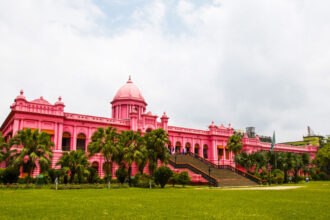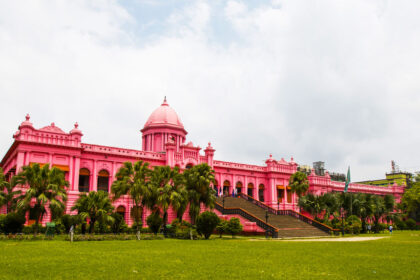Avoid drinking tap water and neglecting local customs in India. Plan ahead to ensure a smooth and enjoyable trip.
India offers a rich tapestry of culture, history, and natural beauty. However, travelers often make mistakes that can disrupt their experience. Drinking tap water can lead to health issues due to contamination. Ignoring local customs can cause unintentional offense and hinder cultural immersion.
Proper planning and awareness of common pitfalls can enhance your journey. Research destinations, respect traditions, and stay informed about local norms. By avoiding these common mistakes, you can fully appreciate India’s diverse and vibrant offerings. Prepare well, stay cautious, and immerse yourself in the country’s unique charm for an unforgettable adventure.
Familiarize Yourself With Basic Greetings
Traveling to India offers a vibrant tapestry of cultures, languages, and traditions. Many first-time visitors often overlook the importance of basic greetings. Understanding and using local greetings can enhance your travel experience and make interactions smoother. Here are some key tips to help you navigate through these greetings.
Understanding The Importance Of Greetings
Greetings play a vital role in Indian culture. They show respect and foster warmth in conversations. Learning basic greetings can bridge the gap between cultures and make your trip more enjoyable.
Common Greetings To Know
| Greeting | Language | Usage |
| Namaste | Hindi | General greeting, used widely across India |
| Vanakkam | Tamil | Used in Tamil Nadu and among Tamil-speaking people |
| Sat Sri Akal | Punjabi | Common in Punjab and among Punjabi speakers |
Using Non-verbal Gestures
Non-verbal gestures are as important as spoken words in India. A slight bow with hands pressed together in a prayer-like gesture, known as “Namaste,” is a common and respectful way to greet someone.
Respecting Local Customs
In many regions, using the right greeting can make a significant difference. Always be mindful of the local customs and traditions. This shows respect and a willingness to learn and adapt.
Practice Makes Perfect
Practice these greetings before your trip. Listening to locals and mimicking their pronunciation can help you get it right. Don’t worry about making mistakes; locals appreciate your effort to speak their language.Familiarizing yourself with basic greetings can greatly enhance your travel experience in India. It shows respect for the culture and can lead to more meaningful interactions with locals.
Mistakes To Avoid In India Travel
India is a vibrant and diverse country with rich cultural heritage and stunning landscapes. But traveling here can present unique challenges. Knowing the common mistakes travelers make can save you time, money, and hassle. Here are some key mistakes to avoid when traveling in India.
Overpacking
Overpacking can make your journey cumbersome. Carrying too much luggage can slow you down and make navigating busy streets difficult. Here are some tips to avoid overpacking:
- Pack versatile clothing that can be mixed and matched.
- Use packing cubes to organize your belongings.
- Limit shoes to two or three pairs.
Consider climate and activities planned. Opt for lightweight fabrics and layers. Avoid packing items you can buy locally if needed. This can help keep your luggage manageable.
Packing Too Much
Packing too much can lead to unnecessary stress. It’s important to pack only what you need. Here are some essentials:
- Comfortable clothing suitable for hot climates.
- Basic toiletries and medications.
- Portable chargers for your gadgets.
- A sturdy backpack for day trips.
Leave room in your suitcase for souvenirs. Aim to pack light and efficiently. This will make your travel experience more enjoyable.
Visa Problems
India requires a valid visa for entry. Ensure you apply well in advance. Common issues include:
- Incorrect visa type: Make sure you apply for the correct visa based on your travel purpose.
- Expired passport: Your passport must be valid for at least six months beyond your stay.
- Incomplete application: Double-check all forms and required documents.
Consult the Indian embassy or consulate for accurate information. Having the correct visa can prevent entry problems.
Booking Flights Too Close Together
Booking flights too close together can cause missed connections. Delays are common. To avoid this:
- Allow ample time between connecting flights.
- Consider potential delays when scheduling.
- Check airline policies for missed connections.
Plan for at least a few hours between flights. This ensures you have enough time for unexpected delays.
Water
Drinking tap water in India can cause health issues. Always opt for bottled or filtered water. Here are some tips:
- Carry a reusable water bottle with a built-in filter.
- Avoid ice in drinks unless you are sure it’s from filtered water.
- Use bottled water even for brushing your teeth.
Staying hydrated is important. But make sure the water you drink is safe.
Not Budgeting Enough
India can be an affordable destination. But not budgeting enough can lead to financial stress. Tips for budgeting:
- Track your expenses daily.
- Plan for unexpected costs such as medical emergencies.
- Use local transportation like buses and trains.
Research average costs of accommodation, food, and activities. This helps in setting a realistic budget.
Not Eating Local Food
Not eating local food means missing out on India’s culinary delights. Street food is safe if chosen wisely. Consider these tips:
- Eat at popular stalls with high turnover.
- Avoid raw foods and opt for cooked dishes.
- Try regional specialties for an authentic experience.
Experimenting with local cuisine can enhance your travel experience. Just be cautious about hygiene.
Biggest Travel Mistakes
Many travelers make common mistakes that can be easily avoided. Some of the biggest travel mistakes include:
- Not researching destinations before arrival.
- Ignoring local customs and etiquette.
- Underestimating travel times between cities.
Being aware of these pitfalls can make your trip smoother and more enjoyable.
Carrying Valuables
Carrying valuables can make you a target for theft. Here’s how to keep them safe:
- Use a money belt to keep cash and documents secure.
- Avoid flashing expensive items like jewelry and gadgets.
- Keep copies of important documents in a separate place.
Minimize the number of valuables you bring. Stay alert, especially in crowded areas.
Forgetting To Get Local Currency
Local currency is essential for daily transactions. Forgetting to get local currency can cause inconvenience. Tips to avoid this:
- Exchange money at the airport or use ATMs.
- Carry small bills for easier transactions.
- Check the exchange rate to avoid getting shortchanged.
Having local currency on hand can make your trip more convenient and hassle-free.
Make Copies Of Important Documents
Always make copies of important documents. This can save you in emergencies. Important documents include:
- Passport and visa.
- Travel insurance policy.
- Emergency contact information.
Keep both digital and physical copies. Store them separately from the originals.
Not Buying A Cellphone Plan
Not having a cellphone plan can leave you disconnected. Consider getting a local SIM card. Benefits include:
- Affordable data plans for internet access.
- Local calling rates for easier communication.
- Navigation and translation apps to assist your travel.
Staying connected can make your trip more convenient and enjoyable.
Not Dressing Respectfully
India is a conservative country. Dressing respectfully is important. Tips for dressing appropriately:
- Wear modest clothing that covers shoulders and knees.
- Avoid tight-fitting attire.
- Carry a scarf for visiting religious sites.
Respecting local customs through your attire can help you blend in and avoid unwanted attention.
Not Enough Planning
Lack of planning can lead to missed opportunities. Plan your itinerary to maximize your experience. Tips for effective planning:
- Research destinations and activities in advance.
- Book accommodations and transportation early.
- Check local events and festivals for unique experiences.
Good planning can help you make the most of your trip to India.
Not Sticking To A Budget
Not sticking to a budget can lead to financial stress. Tips to stay within budget:
- Track your spending daily.
- Prioritize essential expenses over luxuries.
- Look for deals and discounts on activities.
Being mindful of your budget can ensure a stress-free travel experience.
Beware Of Scams
Traveling to India can be an unforgettable experience, but it’s essential to stay vigilant. One common travel mistake is falling for scams. Scams can tarnish your trip and lead to unnecessary stress. Below, we outline some common scams and how to avoid them.
Fake Tour Guides
Some individuals pose as tour guides and offer their services. These fake guides may overcharge you or provide inaccurate information. Always book tours through reputable companies or your hotel. Ensure that the guide has proper identification and credentials.
Taxi Overcharging
Taxi drivers may take advantage of tourists by charging exorbitant fares. To avoid this, use ride-sharing apps like Uber or Ola. If you opt for local taxis, insist on using the meter or agree on a fare before the ride begins. Avoid accepting rides from drivers who approach you directly at airports or train stations.
Fake Ticket Scams
Scammers may sell fake tickets for trains, buses, or tourist attractions. These tickets are often overpriced and invalid. Always purchase tickets from official counters or authorized websites. Keep your tickets secure and verify them before boarding.
Gemstone And Carpet Scams
Beware of friendly locals who offer to sell you gemstones or carpets at “special” prices. These items are often fake or significantly overpriced. If you wish to buy such items, visit reputable stores and get a certificate of authenticity. Avoid making purchases from street vendors or individuals you just met.
Fake Charities
Scammers may pose as representatives of charities and solicit donations. They may use emotional stories to manipulate you. Always research the charity before donating. If approached on the street, politely decline and walk away. Donate only to well-known, reputable organizations.
Credit Card Skimming
Credit card skimming is a common scam where your card information is copied during a transaction. To protect yourself, use cash for small purchases. When using a card, ensure that the transaction happens in front of you. Monitor your bank statements regularly for any unauthorized charges.
Staying Safe And Healthy
Traveling to India offers a rich tapestry of experiences, from vibrant cities to serene landscapes. However, staying safe and healthy is crucial to fully enjoy your journey. Awareness and preparation help avoid common pitfalls. This section highlights key areas to focus on to ensure a safe and healthy trip.
1. Hydrate Wisely
India’s climate varies widely, and dehydration is a common issue. Always drink bottled or filtered water. Avoid tap water and ice cubes as they may harbor bacteria.
2. Food Safety
Street food is tempting, but it can sometimes lead to stomach issues. Opt for freshly cooked food from reputable vendors. Wash fruits and vegetables thoroughly before consumption.
3. Vaccinations And Medications
Ensure you are up-to-date with required vaccinations. Carry a basic medical kit that includes pain relievers, anti-diarrheal medication, and any prescription medicines. Consult your doctor before traveling.
4. Sun Protection
India’s sun can be intense. Use sunscreen with at least SPF 30. Wear sunglasses and a hat to protect yourself from UV rays.
5. Avoiding Insect Bites
Insect bites can lead to diseases like dengue and malaria. Use insect repellent with DEET. Wear long sleeves and pants in mosquito-prone areas.
6. Personal Security
Keep your belongings secure at all times. Use a money belt or neck pouch for valuables. Avoid isolated areas, especially at night.
7. Traffic Awareness
Traffic in India can be chaotic. Use pedestrian crossings and follow local traffic rules. When taking public transport, choose licensed taxis or ride-sharing apps.
8. Emergency Contacts
Keep a list of emergency contacts handy. Include local emergency numbers, your country’s embassy, and accommodation details.
| Health Tip | Details |
| Hydrate Wisely | Drink bottled or filtered water only. |
| Food Safety | Eat fresh, well-cooked food from reputable sources. |
| Vaccinations | Stay updated with necessary vaccinations. |
| Sun Protection | Use sunscreen, sunglasses, and hats. |
| Insect Bites | Use insect repellent and cover your skin. |
| Personal Security | Keep valuables secure and avoid isolated areas. |
| Traffic Awareness | Follow traffic rules and use safe transport options. |
| Emergency Contacts | Keep a list of important contacts with you. |
Respect The Culture
Traveling to India can be an enriching experience, but it is important to avoid common travel mistakes. One of the most crucial aspects is to respect the culture. India has a rich cultural heritage, and understanding local customs and traditions can make your trip more enjoyable and respectful. Below are some key points to keep in mind to ensure you respect the culture during your visit.
Respecting Religious Practices
India is a land of diverse religions. Always show respect for religious practices. If you visit temples, mosques, or other religious sites, dress modestly. Cover your head if required, and remove your shoes before entering.
- Hindu Temples: Wear modest clothing, cover shoulders and knees.
- Mosques: Women should cover their heads with a scarf.
- Gurudwaras: Both men and women should cover their heads.
Mind Your Hand Gestures
Certain hand gestures can be offensive in India. Using your left hand to eat or pass objects is considered disrespectful. Always use your right hand for these actions.
| Action | Preferred Hand |
| Eating | Right Hand |
| Giving Gifts | Right Hand |
| Passing Items | Right Hand |
Avoid Public Displays Of Affection
Public displays of affection are frowned upon in many parts of India. Holding hands in public is acceptable, but avoid kissing or hugging.
Respect Personal Space
Personal space is valued in Indian culture. Avoid standing too close to people, especially strangers. This is particularly important in crowded places.
Observe Local Etiquette
Each region in India has its own set of etiquettes. Understanding and observing these can help you blend in and show respect.
- Namaste: The traditional greeting involves joining your palms together.
- Elders: Always show respect to elders by addressing them properly.
- Shoes: Remove your shoes before entering homes or certain shops.
Frequently Asked Questions
Avoid disrespecting religious practices. Do not touch people with your feet. Refrain from public displays of affection. Avoid drinking tap water. Respect local customs and dress modestly.
Avoid bringing illegal drugs, firearms, and pornographic material. Leave valuable jewelry and excessive cash at home. Avoid offensive religious items and beef products.
Be cautious of crowded areas to avoid pickpockets. Drink only bottled or purified water. Respect local customs and dress modestly. Use reputable transportation services. Stay updated on travel advisories.
Ensure vaccinations are up-to-date. Drink bottled water. Avoid street food. Respect local customs and dress modestly. Use reputable transportation services.
Conclusion
Traveling in India can be an unforgettable experience. Avoid common mistakes to make your journey smoother. Embrace the local culture, plan well, and stay safe. By being mindful of these tips, you’ll enjoy a more enriching and hassle-free adventure. Safe travels and happy exploring!







